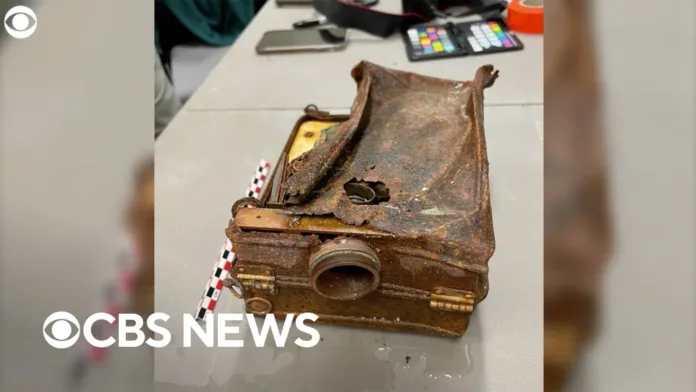Incredible photos from 1930s expedition on mount Lucania resurface, unveiling changes in glacial landscape
Cameras left behind by renowned American explorer Bradford Washburn during his daring Yukon expedition in 1937 have been rediscovered after 85 years, unveiling captivating images frozen in time. Washburn, alongside friend Bob Bates, conquered Mount Lucania, the third-highest mountain in Canada, documenting their journey with several cameras.
The explorers faced challenges during their descent, compelling Washburn to abandon much of his equipment, including the cameras, on Walsh Glacier. Despite the passage of time and the shifting nature of glaciers, Teton Gravity Research (TGR), together with mountain explorer Griffin Post and glaciologist Dorota Medrzycka, successfully located the cameras last year.
Initially faced with disappointment, Medrzycka’s innovative theory involving the examination of medial moraine debris lines eventually led the team to the historic equipment. The Walsh Glacier had surged twice since the 1930s, causing breaks in the moraine, providing crucial clues for the discovery.
The moment of finding the equipment validated the team’s efforts, with Post describing it as “surreal and validating.” Despite Washburn’s Fairchild F-8 aerial camera being broken, two motion picture cameras were recovered, complete with films still inside.
The rediscovered photographs offer a glimpse into the past, revealing changes in the glacial landscape and providing insights into the rapid effects of climate change. This remarkable discovery serves as a testament to the enduring power of exploration and the ever-changing face of our planet.
